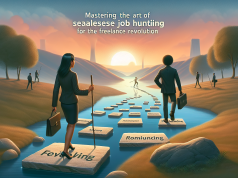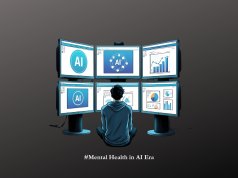In the shimmering landscape of the gig economy, freelancers are the modern-day adventurers. They are the trailblazers who have stepped away from the rigidity of nine-to-five jobs to embrace the autonomy of choosing their projects, setting their schedules, and crafting the elusive work-life balance on their terms. Yet, beneath this veneer of freedom and self-determination lies a stark reality—the threat of freelancer burnout, a tale as old as time, yet magnified in the relentless pace of the digital era.
The Freelancer’s Dilemma is the tightrope walk between flexibility and the precipice of burnout. The gig economy empowers freelancers with choices but, paradoxically, the same choices can become overwhelming. Missing in this independent landscape are the traditional boundaries and support systems that once delineated work from rest, professional from personal. Without these guardrails, the siren call of ‘just one more project’ can lead even the most seasoned freelancer into the abyss of chronic stress and exhaustion.
Recognizing the early signs of burnout is paramount. It often begins subtly—an extra hour of work each day, the creeping encroachment of tasks into late-night hours, the inability to disconnect from the digital tether of emails and messages, and a nagging fatigue that no amount of coffee can seem to dispel. The joy in work begins to diminish, deadlines become a source of dread, and the isolation of freelancing can start to feel less like solitude and more like confinement.
The key to confronting this dilemma lies in establishing a sustainable work routine. Freelancers must become architects of their own well-being, constructing a framework that supports both their professional ambitions and personal health. This includes setting clear work-hours despite the allure of a 24/7 availability, creating a designated workspace separate from personal areas, and incorporating regular breaks to recharge mental resources. Physical exercise, hobbies, and social interactions must also be calendared, not as afterthoughts, but as vital components of a balanced life.
Moreover, the cultivation of a supportive freelancing community is essential. Platforms and collectives like Gig Flex Club are not merely marketplaces for jobs; they’re lifelines that offer camaraderie, resources, and a shared understanding of the freelancing journey. By fostering a culture of self-care and resilience, such communities can help freelancers navigate the pressures of their careers. From mentorship programs and mental health workshops to forums for sharing best practices, gig platforms can transform from transactional spaces into wellsprings of collective strength.
In the end, the freelancer’s struggle with burnout is a reflection of a broader societal challenge—the search for meaning and fulfillment in the work we do, within the time we have. It’s a reminder that as much as we chase the freedom that freelancing offers, we must also chase the freedom to step away, to rest, and to be human. For in the age of infinite flexibility, the greatest flexibility we can offer ourselves is the permission to pause, to breathe, and to find joy in both work and repose.
As freelancers, the narrative of our careers is penned by our own hands. Let us write a story that speaks not just of success, but also of sustainability and well-being, setting a precedent that the workspace of tomorrow—one gig at a time—is as compassionate as it is competitive.




























